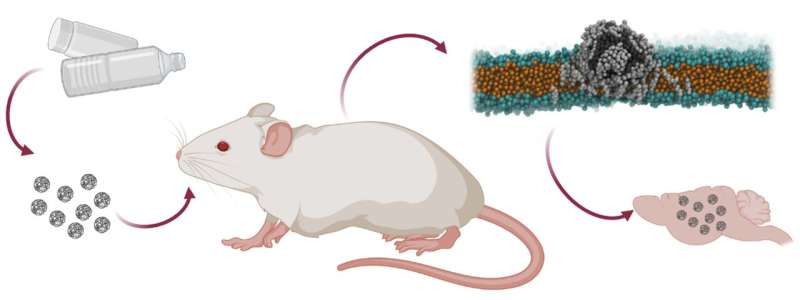The Alarming Findings: Tiny Plastic Particles Breach the Blood-Brain Barrier
Introduction:
In a recent study that has sent shockwaves through the scientific community, researchers have discovered that minuscule plastic particles have breached the blood-brain barrier, raising serious concerns about their potential health effects. Published in April 2023, this groundbreaking research has significant implications, particularly in the realm of baby food production, where the health and well-being of our most vulnerable population are at stake.
The Study:
The study, conducted by a team of scientists at MedUni Vienna, sheds light on the concerning ability of microplastics to infiltrate the brain. Microplastics are tiny fragments of plastic less than 5 millimeters in size that have become pervasive in our environment due to pollution and the extensive use of plastic products. The research team discovered evidence of these particles crossing the blood-brain barrier, a protective shield that normally prevents harmful substances from entering the brain.
Implications for Baby Food Production:
The findings of this study carry significant implications for the production and consumption of baby food. As infants and young children are in a critical stage of brain development, any exposure to harmful substances can have long-lasting effects on their cognitive and neurological health. Unfortunately, microplastics are increasingly finding their way into the food chain, including baby food, posing a potential risk to this vulnerable population.
Contamination Sources:
The contamination of baby food with microplastics can occur through various sources. First and foremost is the environmental pollution caused by the accumulation and breakdown of plastic waste in ecosystems. As plastic debris disintegrates into smaller particles, they can be ingested by marine life, which then enters the human food chain, ultimately ending up in baby food products. Additionally, the manufacturing and packaging processes for baby food may introduce microplastics, such as through the use of plastic containers or machinery that releases particles into the products.
Health Concerns:
The potential health effects of microplastics in baby food are still being studied, but the breach of the blood-brain barrier raises serious concerns. The brain is an incredibly delicate organ, and any disruption in its development can have lifelong consequences. Research has linked exposure to certain chemicals found in plastics, such as phthalates and bisphenols, to developmental issues, hormonal imbalances, and even neurobehavioral disorders.
Protecting Our Little Ones:
Addressing the issue of microplastic contamination in baby food requires a multifaceted approach involving manufacturers, regulatory bodies, and consumers alike. Here are some key steps that can be taken:
1. Stringent Regulations: Governments and regulatory agencies should establish and enforce strict standards for the acceptable levels of microplastics in food products, particularly those intended for infants and young children.
2. Industry Responsibility: Baby food manufacturers must prioritize the use of plastic-free packaging materials and implement stringent quality control measures to prevent contamination during production and packaging processes.
3. Consumer Awareness: Parents and caregivers should stay informed about the potential risks associated with microplastics in baby food. Choosing organic or homemade baby food options can be a way to reduce exposure, while also advocating for change within the industry.
4. Research and Innovation: Continued research into the effects of microplastics on human health, particularly in vulnerable populations like infants, is crucial. Investment in innovative packaging and manufacturing methods that minimize plastic usage can also help address the problem at its source.
Conclusion:
The recent discovery that microplastic particles can cross the blood-brain barrier is a wake-up call for both the scientific community and society as a whole. As we strive to protect the health and well-being of our youngest generation, it is imperative that we address the issue of microplastic contamination in baby food production. By implementing stringent regulations, promoting industry responsibility, raising consumer awareness, and investing in research we can truly start to solve this concerning issue.
Brilliant Baby Foods is committed to sourcing only the purest products in the world to feed to your baby. Through our innovative growing systems to state of the art production facilities, we strive to be the purest product available worldwide.
